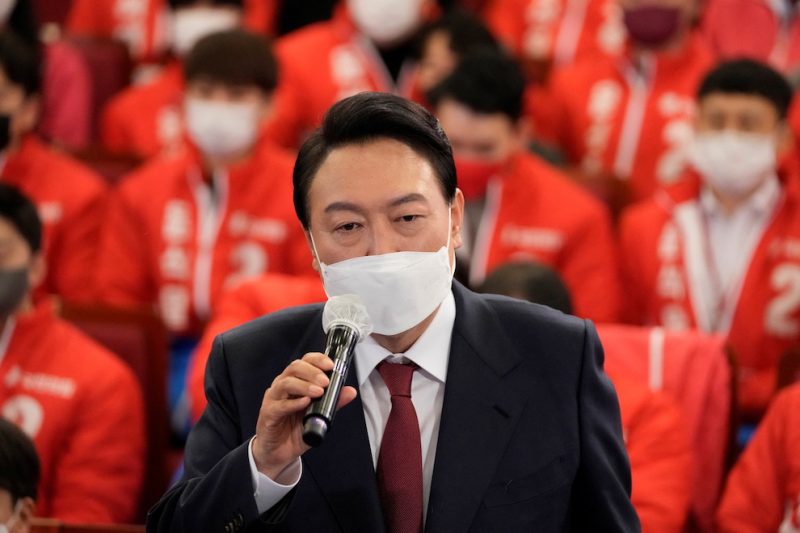The South Korean government unveiled measures on Friday costing 810 billion won (nearly $625 million) to ease people’s costs of living – after President Yoon Suk-yeol described economic conditions as an “emergency” and ordered officials to take all possible steps to ease people’s burdens.
“It’s an emergency situation now,” a media pool report quoted him as saying at the first weekly emergency meeting of economy-related officials.
The measures, which include the removal of tariffs on some food imports and increased welfare support for low-income earners, were announced shortly after.
Yoon’s comment came as inflation rose last month to the highest level since the Asian financial crisis in the late 1990s, reinforcing bets that the central bank would deliver an unprecedented 50 basis-point raise in the policy interest rate at a meeting it will hold next week.
Economists said the measures were aimed at dealing with the effects rather than the causes of inflation and would have little impact on the price trend going forward.
“There would be very limited effect, if any, on the price movement as they are targeted steps on the living cost and for specific groups of people,” said Park Sang-hyun, an economist at HI Investment & Securities, who also expects a 50 basis-point rate hike next week.
The finance ministry said tariffs would be removed on beef and chicken imports while the quotas on pork imports – on which tariffs have already been removed – would be increased. Those measures are expected to cost 330 billion won over the rest of this year.
Another 480 billion won of measures announced on Friday include increased welfare and job-related support for low-income earners and other aid programmes, bringing the total at 810 billion won.
While inflation has mostly come from outside the country, which relies heavily on imports for energy, food and industrial products, it comes as President Yoon, who took office two months ago, struggles with falling popularity.
A weekly opinion poll by Gallup Korea showed on Friday the Yoon presidency’s approval rating dipped to 37% from 43% last week, against a disapproval rating of 49% – the first reversal since he took office.
- Reuters with additional editing by Jim Pollard
ALSO on AF:
South Korea Central Bank Surprises Markets With Rate Hike
South Korea to Add Hundreds More Flights as Covid-19 Ebbs
























